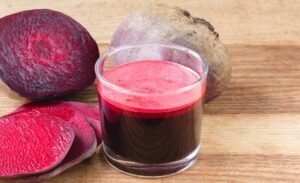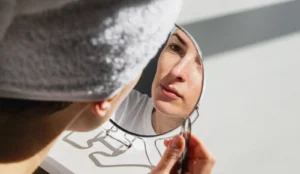Sweating is a physiological mechanism essential to survival: it helps regulate body temperature and eliminate certain toxins through the skin. However, for some people, this natural function can become uncomfortable, bothersome, or even debilitating in their daily lives. Why do some people sweat much more than average, even without physical exertion or in cool weather? Should we be concerned? And above all, what can be done to better manage or reduce this excessive sweating? This article provides a comprehensive overview of the causes, associated symptoms, and available solutions to combat excessive sweating.
What is the purpose of sweating?
An essential natural mechanism
Perspiration is based on the activity of the sweat glands, innervated by the autonomic nervous system (sympathetic branch). It mainly ensures:
- thermal regulation ( thermoregulation): Sweat glands activated by the sympathetic nervous system produce odorless sweat, mainly composed of water and mineral salts. Upon evaporation, this sweat draws heat from the skin and helps maintain internal temperature around 37°C, even in cases of high heat or intense physical activity;
- elimination of toxins: sweat marginally participates in the excretion of water-soluble toxins (small part of urea and lactic acid), thus contributing to metabolic homeostasis (stabilization);
- Skin function: The moisture produced creates a protective hydrolipidic film, which plays a role in health, particularly in the balance of skin flora and defense against certain microorganisms.
The sweat produced by the sweat glands is odorless. When odors occur, they are not due to the sweat itself, but to bacteria present on the surface of the skin. These bacteria consume the sweat and produce chemicals responsible for the odor.
Good to know: In normal times, that is to say, without sustained physical effort or excessive heat, the body produces around 0.5 liters of sweat per day.
Normal vs Excessive Sweating
The amount of sweat produced varies depending on several factors:
- genetics: some people have more sweat glands or greater nervous reactivity;
- climate: high temperature and humidity stimulate sweat production;
- Physical activity: Any increase in energy expenditure leads to an increase in sweating.
- Stress and emotions: Activation of the sympathetic system in cases of anxiety, fear, or stress releases adrenaline and triggers sweating.
When sweating occurs without a clear trigger (cold, exertion, emotion), we speak of excessive sweating or hyperhidrosis, which can be localized (hands, feet, armpits, face) or generalized.
Excessive localized or generalized sweating?
- Localized: armpits, hands, feet, face. It often begins in childhood, without any apparent pathological cause, and becomes more pronounced at puberty. Around the age of 40, it regresses and can reappear at menopause. This is primary hyperhidrosis, generally benign.
- Generalized: In about 10% of cases, excessive sweating affects the entire body and may indicate an underlying medical cause (secondary hyperhidrosis). It can occur at any age.
Why do I sweat a lot? Common causes
Common non-pathological causes of excessive sweating may include:
- Heat, humidity: environments that are too hot or humid directly stimulate the sweat glands.
- Intense physical activity: The more you exercise, the more you sweat to release the heat generated by your muscles, so that your body stays healthy.
- Stress, anxiety, strong emotions: the eccrine glands are very sensitive to adrenaline, linked to stress.
- Diet: Spicy foods, caffeine, and alcohol can cause hot flashes and increase sweating.
- Hereditary factor: Familial hyperhidrosis affects several members of the same lineage, without any other associated health condition (disease).
Furthermore, certain molecules promote the production of sweat:
- corticosteroids, beta-blockers, antidiabetics (sulfamides), certain antidepressants: these treatments can stimulate or disrupt the nervous control of sweating.
- Alcohol or tobacco withdrawal: detoxification phases are often accompanied by night sweats.
- theophylline, opioids;
- stimulants: cocaine, amphetamines.
What diseases can cause excessive sweating?
Primary (essential) hyperhidrosis
This is localized sweating with no identified organic cause, often beginning in adolescence. Here, other symptoms are absent, and a family history is common.
Secondary hyperhidrosis (due to a disease)
Diseases that can cause secondary hyperhidrosis include:
- hyperthyroidism: accelerated metabolism, hot flashes, profuse sweating;
- diabetes: hypoglycemia causes cold sweats;
- menopause: hormonal drops cause hot flashes and night sweats;
- chronic infections: tuberculosis, HIV, and other systemic infections can cause profuse night sweats;
- cancers: leukemia, lymphomas, sometimes manifest as intense night sweats;
- neurological diseases: dysautonomia, Parkinson’s disease, spinal cord injuries;
- Hormonal disorders: pheochromocytoma (adrenal tumor) causes peaks in adrenaline and cortisol, with sweating.
- Cushing’s syndrome: Excess endogenous cortisol can lead to obesity, stretch marks, hypertension, or frequent sweating.
The table below summarizes the different characteristics of hyperhidrosis:
Should I be worried if I sweat a lot?
Signs that should alert you
- Heavy night sweats, soaking sheets and clothes without a reason for high temperature.
- Recent and unexplained onset of excessive sweating.
- Associated symptoms: fever, weight loss, chronic fatigue, palpitations, unexplained pain, shortness of breath.
- Risk contexts: history of cancer, infections, and autoimmune disease.
When to consult?
- Significant discomfort in daily life (friction, odors, social isolation).
- Presence of unusual or persistent symptoms.
- Failure of lifestyle measures after several weeks
The goal for the doctor will be to identify a medical cause for the excessive sweating, which may be treatable to improve health (hyperthyroidism, infection, cancer, etc.).
What are the treatments for excessive sweating?
Basic hygiene measures
- Frequent showers with mild soaps, careful drying.
- Clothing made from natural fibers (cotton, linen), loose cuts.
- Deodorants and antiperspirants containing aluminum salts, to be applied to dry skin.
Medical treatments
- Oral anticholinergics: These medications reduce generalized sweating, but often cause dry mouth and constipation.
- Botulinum toxin injections (Botox®): This locally blocks nerve stimulation of the sweat glands. These injectable medications are effective for 4–6 months.
- Iontophoresis: This is the application of an electric current to water, which reduces the permeability of the glands.
- Surgery (sympathectomy): section of the thoracic sympathetic trunk, reserved for extreme cases, with risk of compensatory sweating in other areas.
Sweating a lot: what are the consequences?
Although it’s generally not serious, excessive sweating or hyperhidrosis can be bothersome in everyday life. When the feet, hands, and armpits sweat a lot, it can lead to health problems, particularly for the skin, such as:
- nail and skin fungus, particularly on the feet;
- warts on the feet and hands;
- frostbite.
Additionally, excessive sweating can lead to dehydration, especially during heat waves. Excessive sweating can also lead to withdrawal and professional discomfort, which can be significant in certain professions.
Tips for Living Better with Excessive Sweating
- Choose clothing made of cotton or absorbent materials, and avoid synthetic fabrics.
- Have a change of clothes for the day or night.
- Absorbent wipes or mattifying powders to absorb excess moisture.
- Breathable shoes (whether you are playing sports or not), breathable insoles to limit maceration of the feet.
- Communication with those around you: explain the problem to avoid stigmatization and isolation.























+ There are no comments
Add yours